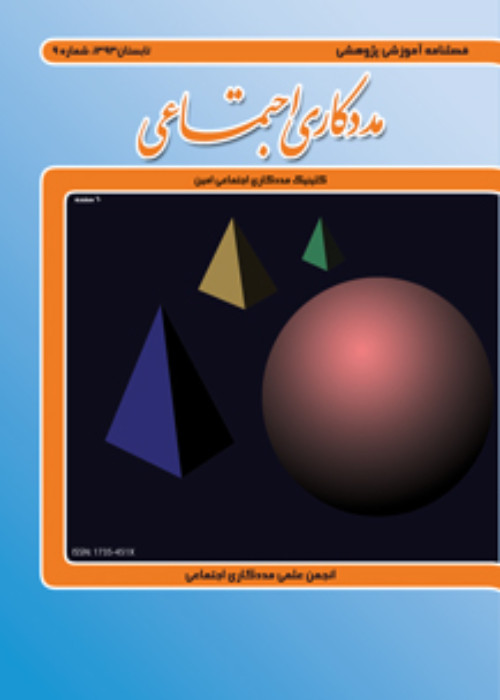A Developmental Study of Responsibility and Its Relationship with Perceived Parenting Styles among Yazd Residents
Responsibility takes on different meanings and levels during different courses of human life and is closely related to the way children are raised by their parents, particularly in the early ages of their life. The developmental changes in responsibility and its relationship with the perceived parenting styles of Yazd residents were studied in the framework of a cross-sectional analysis.
Using both causal-comparative and correlational research designs, the population consisted of three hundred fifty-one fifty-one men and women aged twelve to seventy-five years old were recruited in six age groups. Depending on the age differences, the first(twelve to thirteen-year-olds), second(fifteen to seventeen-year-olds), third(twenty to twenty-five-year olds), and fourth group(thirty-five to forty-year-olds) were selected using multi-stage random sampling, while the fifth(forty-five to fifty-five-year-olds), as well as sixth (groups over sixty-year-olds), were selected by using a convenience sampling method. The whole sample filled out the perceived parenting styles questionnaire and the California psychological inventory for measuring responsibility.
The findings from the analysis of variance (MANOVA) showed that there was a significant difference in the responsibility scores between the age groups i.e. the fifth age group scored the highest scores of responsibility and the first group had the lowest scores. In other words, responsibility developed increasingly, during the period of transition from adolescence to adulthood. There was also a difference in the responsibility scores of individuals with different parenting styles. Responsibility scores in people with authoritative and strict parenting styles were more than the neglecting style. Thus, in general, people aged forty-five to fifty-five years old with authoritative parents had the highest scores of responsibility.
The findings indicated that further studies on broader age groups, using coherent longitudinal research design, will provide an overview of changes in responsibility at different age courses. Results from changes in parenting style and responsibility will help parents and policymakers in educational systems in planning better policies and programs in the long run.
- حق عضویت دریافتی صرف حمایت از نشریات عضو و نگهداری، تکمیل و توسعه مگیران میشود.
- پرداخت حق اشتراک و دانلود مقالات اجازه بازنشر آن در سایر رسانههای چاپی و دیجیتال را به کاربر نمیدهد.



